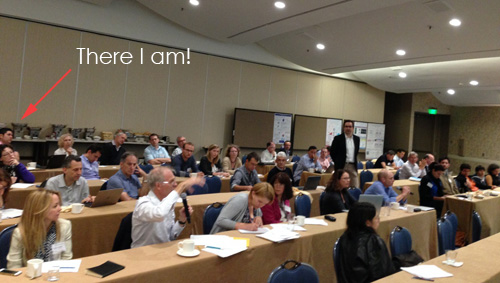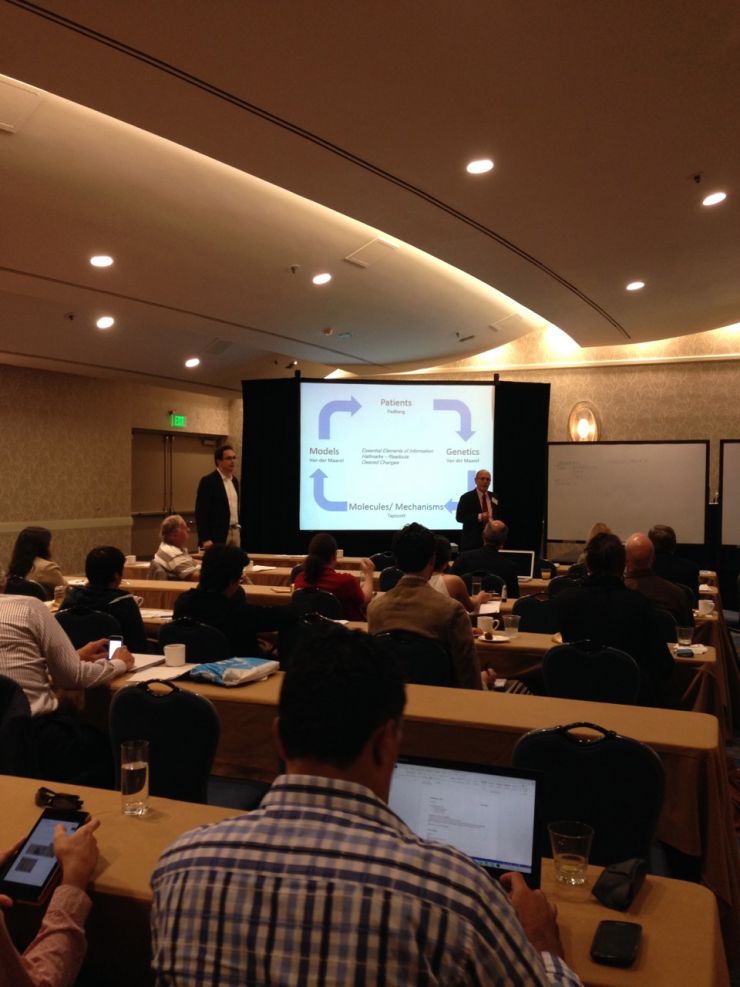Posted by Gregory J Block MSc PhD on Oct 21, 2014
This past weekend, I attended the International FSHD Research Consortium. The meeting was held in San Diego alongside the American Society for Human Genetics Annual Conference. The gathering is organized by the FSH Society, attended by researchers from all over the world, and mediated by the funding organizations that make up the FSHD Champions.

I've attended this meeting many times in the past. I usually listened intently for any snippet of data that may have helped move my own research project forward. This time, I zoomed out and was thinking deeply about how Friends of FSH Research can further support the community. However, it's one thing to throw money at research, and it's another thing to imagine the research as part of the bigger picture. The bigger picture is complex, and I think the best way to describe the "changing landscape of FSHD" is to draw analogy to how I can occasionally fail to see the bigger picture in my own life.
A few months ago, June Kinushita, the executive director of the FSH Society, visited Seattle. After a long flight, and a long day of meetings, I invited her for dinner with my family so she wouldn't have to drive all the way to Olympia in rush hour traffic. What I thought was a fairly innocuous gesture of kindness nearly got me killed by my wife who was devastated that I hadn't even bothered to clean the dishes before letting a colleague into the house. I mean like really nearly killed.

By laying out a consensus on the pathophysiology of FSHD, we have invited the world to our party to join us in thinking about strategies to intervene with the disease. Many new faces from academia and industry are showing up every year.
It's time to vacuum the floor, clean the dishes, and set out a cheese plate. The science we do now as a community is being adopted around the globe. Our experiments need to be creative, and the data need to be robust, reproducible, and right (the 3 R's). The tools we develop need to be accessible and shareable. Efforts carried out by independent labs need to be complementary to the forward trajectory of the research landscape, and the need for open collaboration is greater than it's ever been.
As always, funding from Friends of FSH Research will be used to support innovative science.
If you've been donating your time and money over the last decade, it's time to give yourself another well-deserved pat on the back, because without your commitment we would not be where we are. There's never a better time to hit that big donate button at the top of the page to help us cure FSHD.
As always, please reach out if you have an questions.
Greg





Connect with us on social media